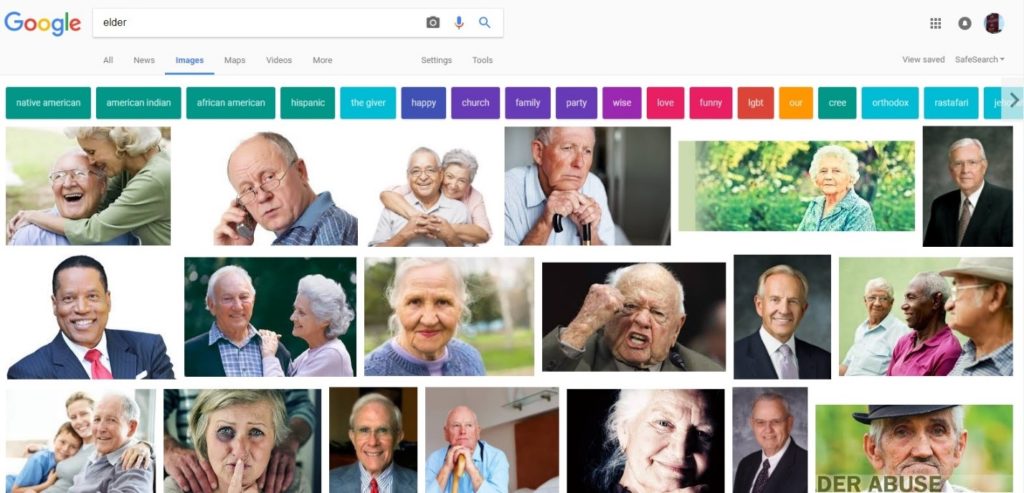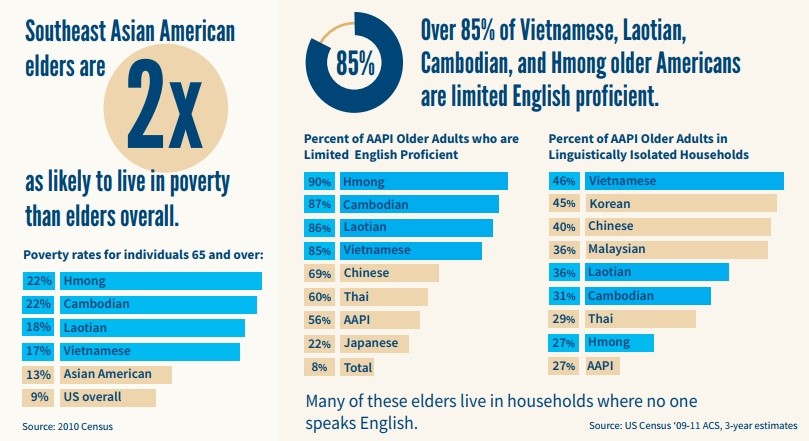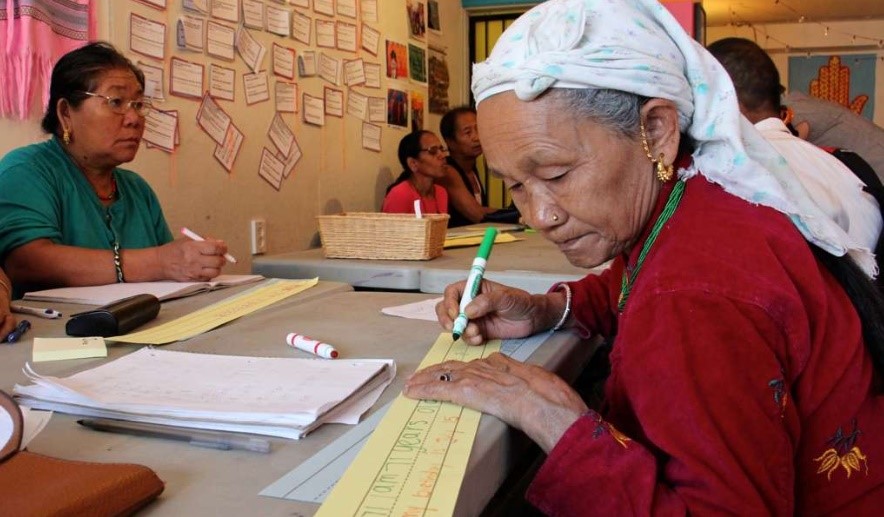The Diverse Elders Coalition is attending this week’s Moving Mountains equity summit in Washington, DC, hosted by the Southeast Asia Resource Action Center (SEARAC). National Managing Coordinator Jenna McDavid wrote this blog to highlight the importance of bringing older adults into the fight for equity, justice and freedom. On Saturday, October 14th, participants of the summit will march from the Vietnam Veterans Memorial to the Martin Luther King, Jr. Memorial in DC. Learn more and join the march here.
When I joined the Diverse Elders Coalition (DEC) in 2015 as a Communications Associate, once of my first tasks was to find us some good stock photography that we could use in our reports and on our website. To my surprise, a Google Image search for “aging” or “older adults” yielded mostly a sea of smiling white faces:

Did you know? Only white people grow old! And that one young Black man, I guess.
Yes, it’s true that America is getting older – by 2030, one in five Americans will be over the age of 65 – but America is also getting more and more diverse. Currently, one in five older adults in the United States is an American Indian/Alaska Native, an African American, an Asian American or Pacific Islander American, a Native Hawaiian, and/or Latinx. But by 2040, one out of three older adults will be from one or more of these diverse communities. And with LGBTQ+ visibility increasing, it is likely that more older adults will come to identify as lesbian, gay, bisexual, transgender, or queer.
Now, I’m the National Managing Coordinator for the Coalition, and in my work, I see profound disparities not just in Google Image searches, but also in aging policy, advocacy, and direct services. When the DEC surveyed 5,000 diverse elders last summer about what they needed from their communities in order to age with health and dignity, we learned a lot about the weaknesses of our current aging supports and structures. Southeast Asian American (SEAA) older adults, in particular, experience extremely high levels of poverty, limited English proficiency, and linguistic isolation.

What this means in practice is that Southeast Asian American elders desperately need the services provided by aging programs in their communities – healthcare and benefits enrollment, nutrition and meal services, computer classes, employment resources – but they may not be aware that they exist or may not be able to access them in the languages that they speak. SEAA elders may experience trauma-related depression, but they may not know how to explain what they’re feeling or know how to seek help. And Southeast Asian American families may be torn apart by the aggressive deportation policies of the current administration, leaving elders without their family caregivers and in fear of seeking the governmental benefits to which they are entitled.
The elders in our communities are leaders, caregivers, and incredible sources of knowledge. They deserve to live out their golden years in good health just as much as the white older adults in that Google Image search do, and it’s up to all of us to ensure that they receive the support that they need. Programs like those offered by the Cambodian Association of Illinois (CAI) and the Southeast by Southeast Community Center in Philadelphia are making huge strides in improving the lives of Southeast Asian American elders. But we need more. Southeast Asian American communities need to value the elders living among them, and non-Asian American communities need to welcome SEAA elders into the fold. Benefits enrollment centers must have in-language materials and interpretation services available. Limited-English proficient elders and their families told us about the difficulties they face in understanding documents mailed to their homes, in filling out the forms they are expected to fill out at the doctor’s office, and in being understood by automated phone menus. What is your organization doing to increase access to services by the members of your communities who need them most?

Deo Maya Rai, 71, writes her age and birthday during a class for older Bhutanese immigrants at Southeast by Southeast. (Emma Lee/WHYY)
Racism and discrimination rob us of our humanity. When members of our communities are unable to bring their whole selves to the table – or when they are not invited to the table in the first place – we are ALL worse off because of it. It might feel, especially in this political moment, that improving our society for the better is akin to moving mountains, but it is up to all of us to agitate for those changes until they are made, until those mountains have been moved. We owe it to the generations that have come before us – and the generations that will come after.
The opinions expressed in this article are those of the author and do not necessarily reflect those of the Diverse Elders Coalition.

